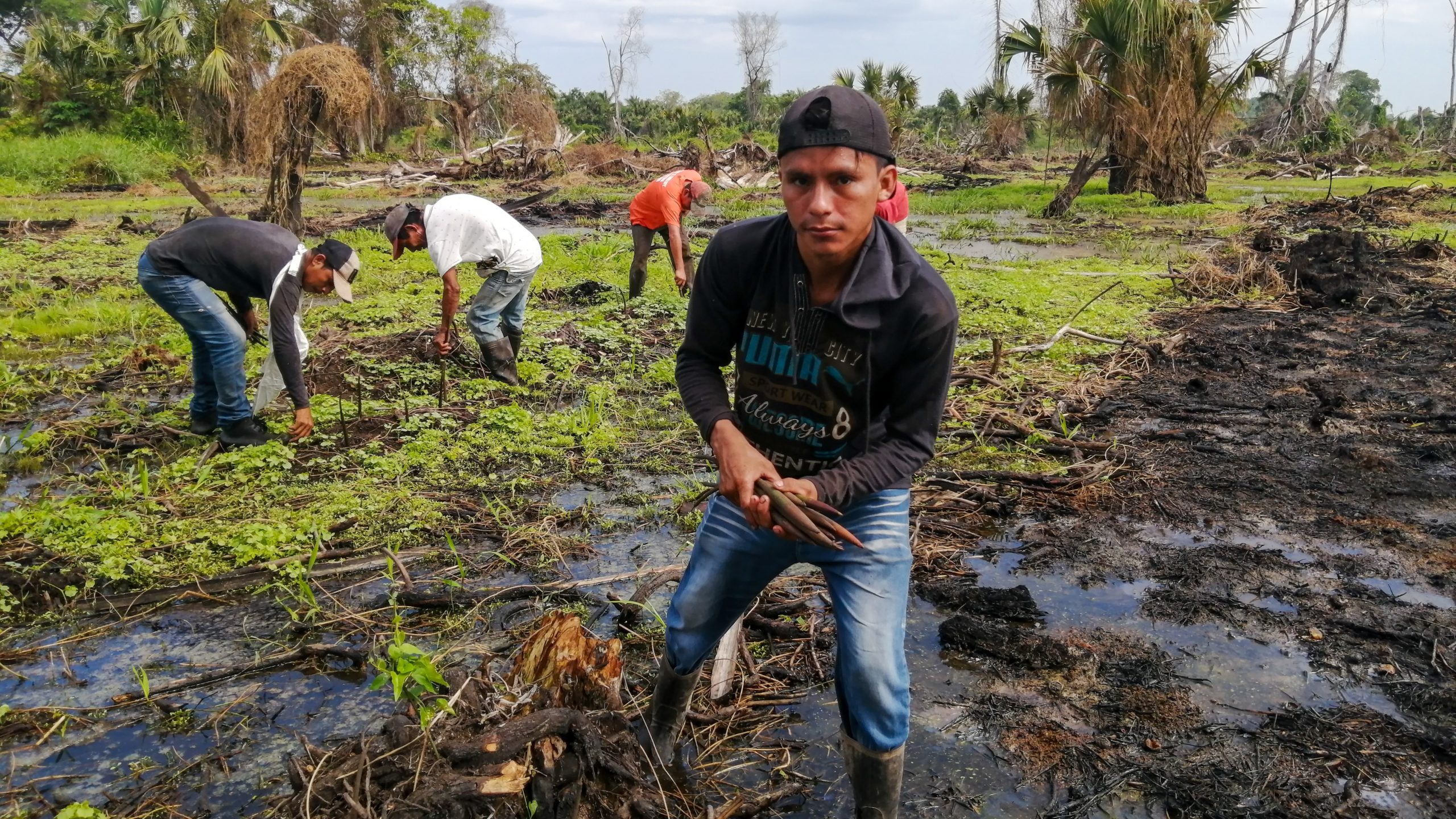Highlights

Connecting sustainability standards with national palm oil regulatory frameworks
We gained approval for national interpretations of the Roundtable for Sustainable Palm Oil (RSPO) principles and criteria in Guatemala, Honduras and Nicaragua. Nicaraguan smallholder organizations formalized and Honduran smallholders took steps to title their land. In Honduras, we launched decent work and gender baselines and training, and the government ratified the sector’s zero deforestation agreement.

Increasing farmer ownership and inclusion in coffee supply chains
In Honduras, CONACAFE partnered with us to implement the national gender strategy. Capucas Cooperative partnered with us to use blockchain technology to create a fair value distribution pilot for 200 producers and we signed an agreement with Molinos to carry out a carbon measurement pilot for 100 farmers in 2022.

Building capacity in the sugarcane supply base
The MAS-CAÑA pilot concluded and Solidaridad signed a new partnership with Grupo Pantaleón, scaling smallholder productivity efforts in Mexico. PanameriCaña implemented four efficient production of sugarcane certificate courses for technicians in multiple mills. Participants were trained in good agricultural practices, gender inclusion and fair labor practices.

Integrating farm management systems
The livestock programme in Nicaragua grew from 130 to 180 producers adopting good practices, disseminated through farmer field schools and promoter initiatives. Farmers create an annual management plan that helps them to apply vitamins, dewormers and vaccines in time, provide better infrastructural conditions, use smaller paddocks and improved rotation, and other practices.

Improving livelihoods through agroforestry
Nicaragua’s cocoa programme saw a 48.3 percent increase in hectares under climate-smart management practices. Producer families and cooperatives have increased their RA standard compliance by 38.4 percent, and they have improved wages by 16.2 percent. 38.5 percent of producer families improved their income from cacao bean sales and other products obtained from their agroforestry systems.
Results

73,000
Farmers, miners, and workers under improved working conditions

592,000
Hectares under sustainable management

208,000
Hectares with improved soil organic matter
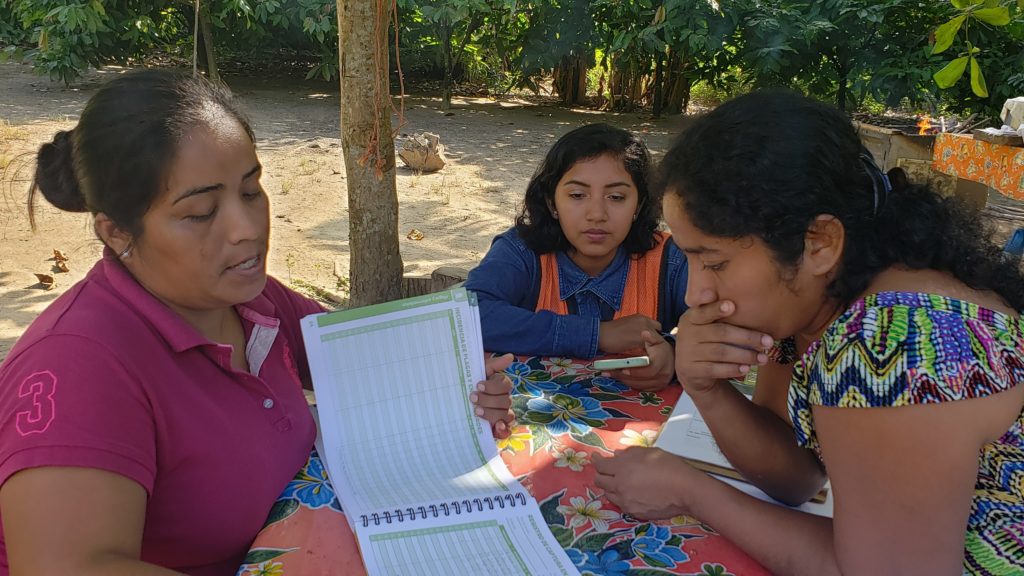
A deep dive
Results across four areas
Solidaridad implements programmes in four integrally interconnected result areas: at the farm or producer level, at the business level, at the policy level, and at the market level. All with the overall goal of building resilient communities through sustainable supply chains.
In Mexico, oil palm nutrition expert Dr. Cristancho Rodríguez and Solidaridad staff engaged 60+ oil palm smallholders to share best practices that will improve their farms’ productivity.
In Guatemala, we trained 100 smallholders to adopt good practices, including compost use, palm pruning, soil and leaf tests and adequate waste disposal. A total of 140 smallholders logged activities, costs and harvest data to make better and more timely decisions on the farm. Of those 140 smallholders, 40 piloted digital tracking using Farm Diary. We built capacities in entrepreneurship and management for 10 board members from the smallholders’ association. Also, more than 20,000 hectares were newly RSPO certified in 2021.
In Nicaragua, Solidaridad trained 35 technicians from partner Mercon Coffee Group in change management through our AgroLearning platform. Our teams used diverse training and dissemination methods to promote good practices in palm, cacao and livestock production. We also supported five private companies to adopt better social and environmental policies and regulation within their supply chains.
PanameriCaña has developed five finely-tuned components to replicate capacity building in sugarcane good practices in fields and factories across the region. In 2021, the team delivered four one-year certificate programmes in Mexico in which 43 women and 140 men were trained in efficient sugarcane production. MAS-CAÑA’s pilot concluded with an overall increase in productivity of 26 percent and an 80-percent reduction in the use of active ingredients per hectare when using agrochemicals among participants.
Following multi-stakeholder dialogue steered by Solidaridad through the Mesoamerican Palm Oil Alliance, (MAPA), to align the Principles & Criteria (P&C) of the Roundtable for Sustainable Palm Oil (RSPO) to each country’s national law and regulations, the RSPO Board of Governors endorsed the National interpretations for the P&C in Guatemala and Honduras in June and in Nicaragua in November.
To promote RSPO certification for smallholders in the region, we supported smallholder organizations in Nicaragua to achieve formalization and helped smallholders in Honduras to take steps to title their land.
In Honduras, a new programme, funded by the Dutch Ministry of Foreign Affairs, launched in the palm sector with baselines and training in decent work and gender inclusion. The same programme also launched in the coffee sector. The coffee programme is focused on fair distribution throughout the value chain, and initial activities our team executed in 2021 were conducting a baseline with 200 Capucas Cooperative members and providing gender training that will promote gender inclusion throughout the value chain.
In Guatemala, we continue working with the private palm oil sector and government agencies to implement the remediation and compensation procedure to comply with RSPO standards.
In Honduras, 100 percent of companies and smallholder cooperatives reconfirmed their commitment to the zero-deforestation agreement through its ratification in 2021. More than 400 farms spanning 50,000 hectares from 11 social and private companies have uploaded their plots’ farm and forest data into the National Monitoring System for Deforestation (SIGMOF).
We are also leading the development of public policies, leveraging our work through the Sustainable Coffee Platform in Honduras. This will help coffee farmers, especially women and youth, to have greater participation throughout the value chain, be able to voice their opinions and advocate for their rights in the sector. Different stakeholders in the value chain are taking ownership, presenting ideas on how to adopt the national gender policy as a guiding and regulatory framework for the sector. We also facilitated dialogue with multiple stakeholders to encourage the adoption of value distribution into the national coffee policy.
In November, we sent a delegation to the 2021 UN Climate Change Conference (COP26). Our specialists worked together across regions to create a package of lobby and advocacy materials to engage potential partners at the event. The delegation forged new relationships with government, private-sector and civil-society partners who will take action with us to promote climate resilience in Honduras and Guatemala in 2022.
In 2021, the coffee programme in Honduras achieved a commitment from coffee buyer and trader Matthew Algie to participate in the programme’s transparency and traceability model. This will allow coffee smallholders, members of the Capucas Cooperative, to have greater access to the market and to better position their products.
We also developed the business case for palm smallholders working with Solidaridad in Nicaragua to transition to RSPO compliance, based on farmers making investments in agricultural inputs and storage infrastructure, as well as investing the time to build their capacities and form and maintain a farmer organization. The business case involves implementing improved farm management practices, including good agricultural practices and linking to new sustainability markets.
We costed the activities, and found that there will be an annual incremental cost of approximately $570 per hectare and a one-time investment in infrastructure of $225 per farmer. With these investments, farmers can generate additional annual income per hectare of approximately $1,000 over three years, from increased productivity and the sale of smallholder RSPO credits. The farmer business case responds to market signals. We facilitated a link with Cargill, which has expressed intent to purchase the newly RSPO-certified produce.
Most Significant Changes
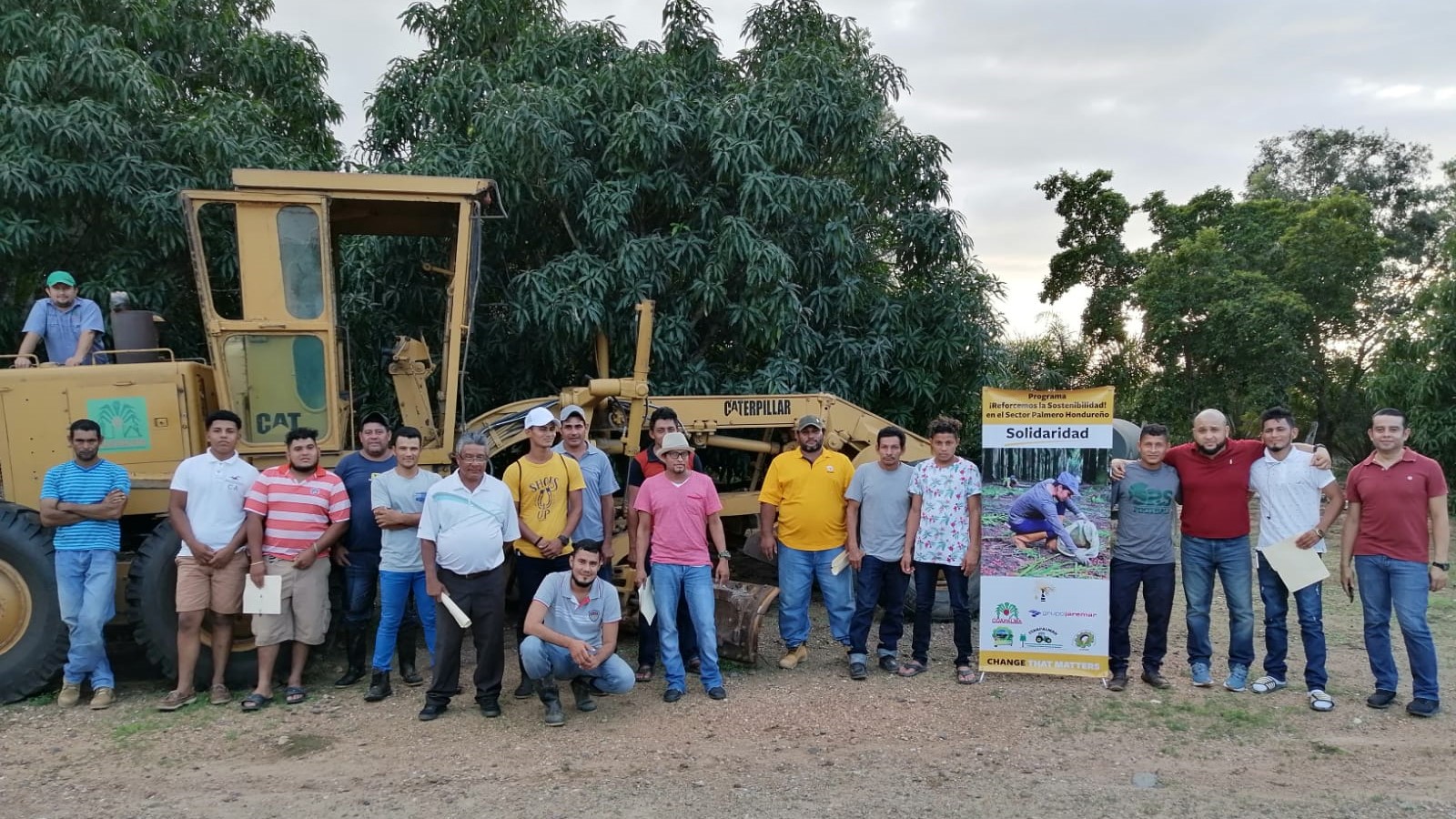
Forging an enabling policy environment in Central America
We have worked on the development of an appropriate mix of mandatory, voluntary, national and international measures that will lead to business respect for the environment and for human rights in Central America and across all regions.
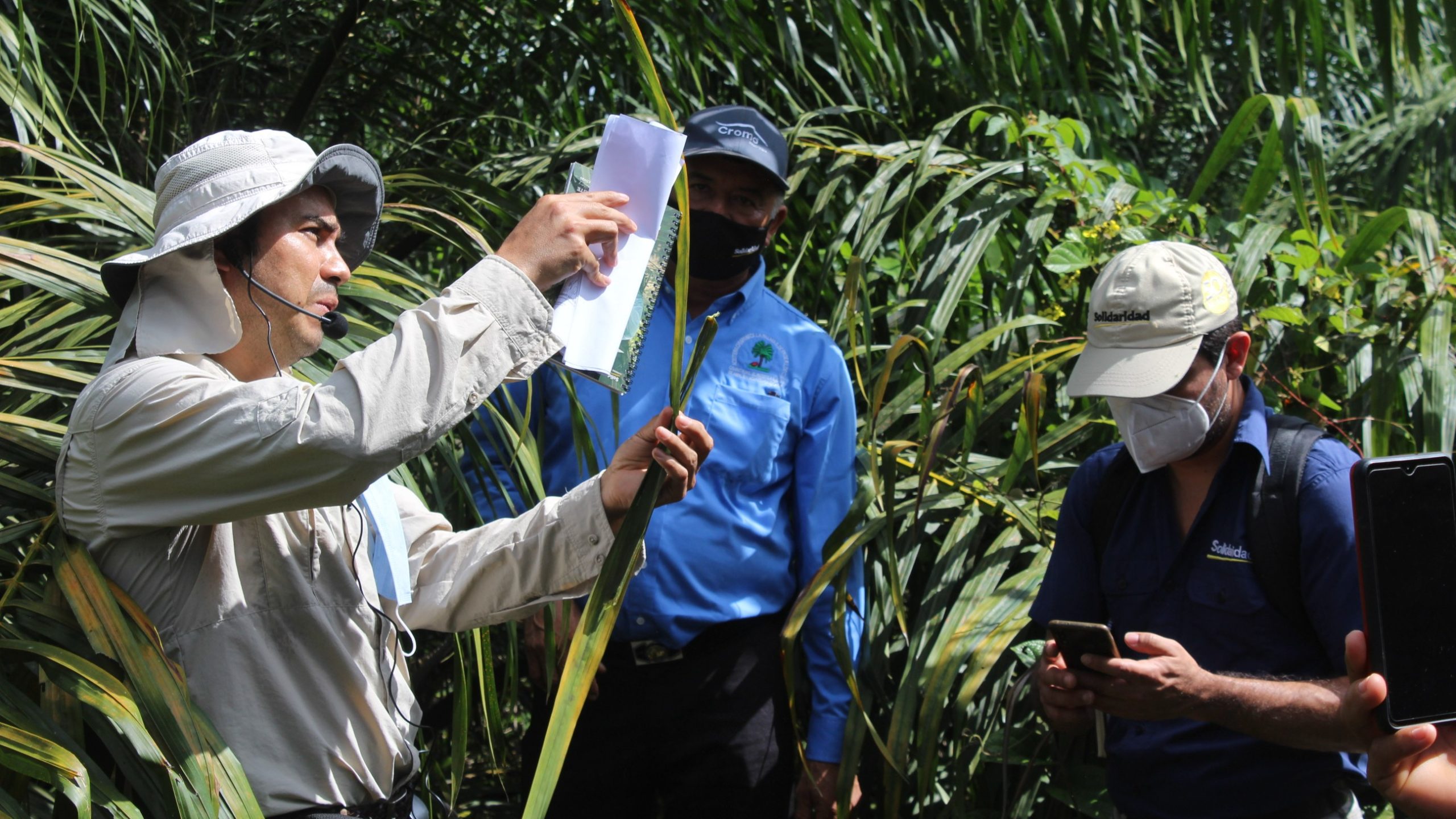
IMPROVING THE PERFORMANCE OF CENTRAL AMERICAN PRODUCERS
This year, we continued working on the development, testing, and implementation of more than 30 tools and models in consortium with public and private partners. We work with farmers, workers and private sector technicians in the field to improve practices through farmer field schools, workshops, learning exchanges and other inclusive education initiatives.
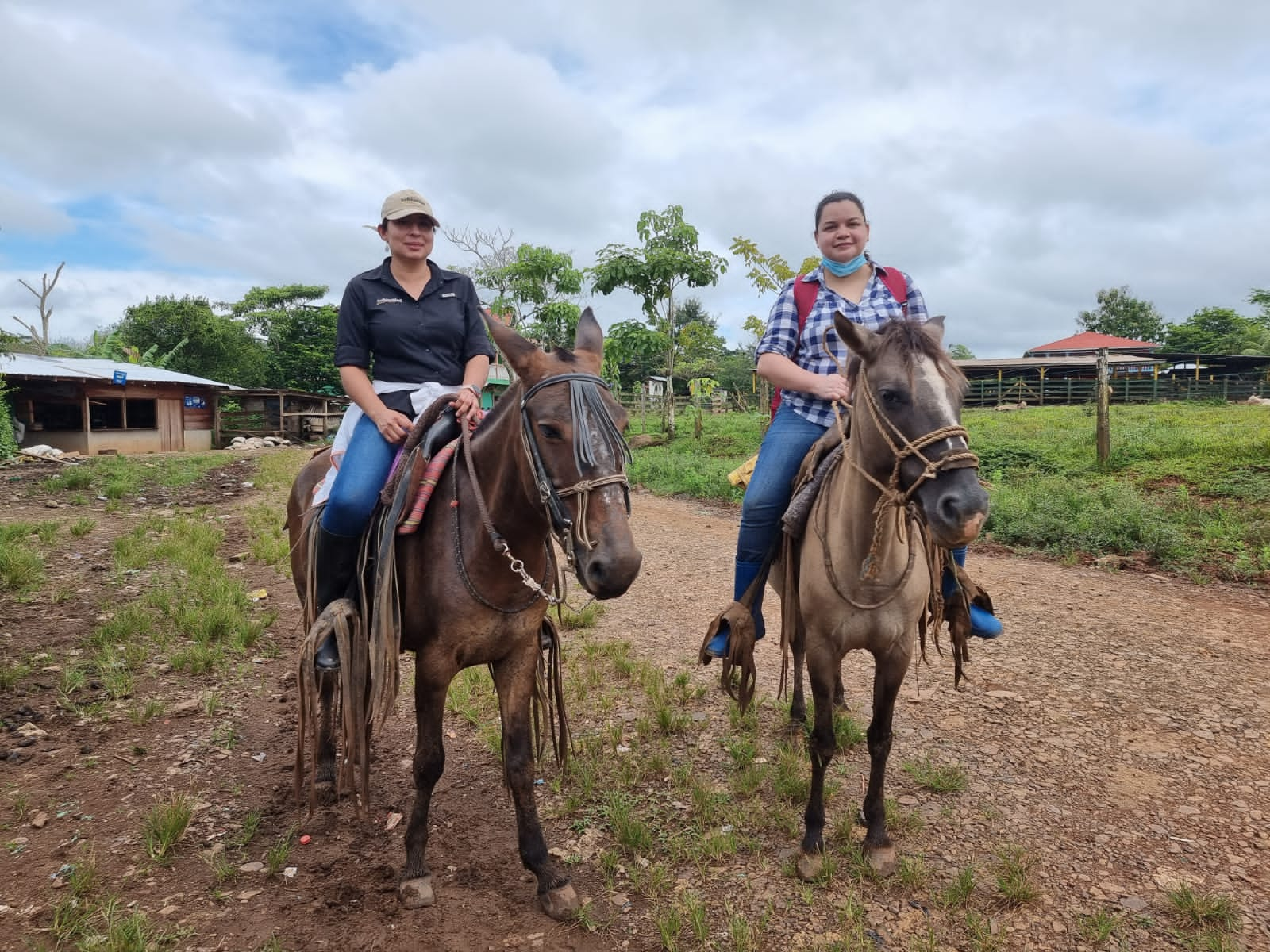
PROMOTING SUPPORTIVE BUSINESS ECOSYSTEMS
In 2021, nearly 5,800 producers received new or improved services from 28 service providers Solidaridad supported, including coffee, cocoa, livestock and oil palm cooperatives, private technical assistance providers, government providers (such as Instituto Nacional Agrario, INA, in Honduras) and promoter groups.
Innovation Areas
Insights
Sustainability made easier
Innovation is the key to success for any organization and vital for growth, but for Solidaridad, it is also the only way to solve some of the imminent and persisting problems we are facing.

This year, our team in Honduras secured a commitment on the part of Matthew Algie, Scotland coffee trader and buyer, to participate in our coffee programme. This commitment will allow end-to-end traceability in the value chain, from the farm to the cup. In the field, Solidaridad conducted a digital survey in 2021, to collect a baseline study of 200 members of Capucas Cooperative, our Honduran partner for the programme.
Solidaridad’s Farm Diary and TRACE, from Fairfood, are the digital tools we will use to promote the traceability and transparency business model within the cooperative. The tools will be tested in 2022 with producers who participated in the baseline. To prepare for the 2022 testing phase, in 2021, we worked with Capucas to define adaptation requirements for Farm Diary (from its initial use in palm to coffee) and linked Fairfood with Capucas, so they could also begin adapting TRACE to the programme’s needs. To complement these solutions, we designed Coffee Quality Tool’s version 2.0 to improve the user experience and allow scalability with partners in other regions.
We have defined the next steps for the second phase in 2022, highlighting the deployment of the digital systems and their integration to provide a clear picture of traceability from production to commercialization.
Solidaridad began a new partnership with Fundación Aldea in Nicaragua, to replicate successful pilots that provided a proof of concept to make carbon markets work for coffee smallholders. The accompanying trees in a coffee agroforestry system provide important environmental services that can be monetized on Rabobank’s Agroforestry in Action (ACORN) market through this pilot project. The additional income will trigger producers’ adoption of climate-smart practices, and improved monitoring and verification technology will connect smallholder producers to the carbon market at low cost. This would be an important incentive for smallholders to promote and adopt the conservation, management and use of agroforestry.
Through this partnership, we carried out capacity building for 18 field technicians to be able to collect and process geo-referenced information using ACORN’s methodology. These field technicians contributed to the calibration process, using 100 hectares of land, for the mathematical model that will quantify volumes of carbon sequestered in the area. The technicians also supported data intake of 1,000 plots. The algorithm can later be applied to calculate the carbon sequestration in these plots, so smallholders can sell credits on ACORN.
Also in 2021, Solidaridad partners MERCON, illycaffé and Taking Root validated satellite-based tool FARMTRACE—which enables the estimation of carbon stored in existing trees in a coffee agroforestry system—in the field with 260 coffee smallholders. The validation aimed to determine the carbon footprint of the smallholders’ production, so that roaster illycafé and trader MERCON can reward smallholders, contributing to each company’s reduced carbon emission targets.
Organization & Governance
A strong base for fundraising and visibility
Nurturing our organizational strengths
Central America and Europe collaborated to link individual donors to meaningful projects, leading to over 100,000 euros invested in agricultural economic development and women’s empowerment in Honduras and Guatemala. Solidaridad Central America, Mexico and the Caribbean established and nurtured important partnerships.

Through our partnership with RSPO, we continue to help position the region as a sustainable source of palm oil that supports the livelihood of thousands of smallholder families.
We were selected to assess labor compliance of two vendors in Guatemala and Honduras who are part of Syngenta’s seed programme. The team is also well positioned now to support the implementation of recommendations to address compliance issues.
In Mexico, we renewed the three-year commitment from AAK for continued smallholder support, building on prior years’ work with three palm oil social enterprises. We established a new partnership with Nestlé to implement a living income programme we developed with smallholder coffee farmers; we will also assess cocoa farmers’ living income status. We are also developing a partnership with USAID’s Sustainable Economic Growth office, and we have opportunities to showcase the RECLAIM Sustainability! coffee programme in Honduras.
In Honduras, we established partnerships with key actors within the environmental and agricultural ministries, in academia, and the private sector.
In Nicaragua, we forged new funding and partnerships with Rabobank and Aldea Global to facilitate the sale of carbon credits for coffee smallholders. German funder DEG/KFW approved funding, through the develoPPP mechanisms, to broaden a carbon-measurement pilot (developed with Mercon and illycaffé) into a carbon-reduction project by integrating agroforestry systems and biodigesters in coffee farms.
We began with a launch of the data model, with 15 staff in attendance and later implemented a regional strategy to communicate the network’s data model in CAM. This consisted of a training programme that introduced the network indicators through five web sessions and infographics. Eighty percent of staff attended at least one session and 60 percent of participants attended half or more of the training sessions.
We carried out two internal pilots to test the data model using regional data collection tools: The first in Mexico, where we reached 30 palm producers for a regenerative agriculture consultancy for GIZ. The second in Honduras, for RS baseline evaluation, reaching 130 coffee producers. In the latter, we linked data taken in the field through Salesforce from JUNGLA to PLAZA. We were the first regional expertise centre to feed network indicators with granular data.
We provided planning, monitoring and evaluation services for:
- RS Baseline evaluations in Honduras: coffee for 176 coffee producers and six CSOs; palm for 371 palm oil workers and producers, three companies, five CSOs, and 14 POs.
- Feasibility study focused on sustainable production of palm oil that meets environmental criteria in Mexico for 30 producers.
- Survey for technical services follow up to 333 producers in cocoa and livestock Nicaragua
- Productive and socioeconomic baselines for Ritter in Nicaragua for 1,300 cocoa farmers and for two Panteleón mills in Mexico for 7,000 sugarcane farmers.
- Design of monitoring activities implementation tool for LandScale.
Communications continued to strengthen brand visibility for our region through various products, including infographics, reports, videos and publications published on organizational channels. Solidaridad’s Central America, Mexico and Caribbean content reached more than 700,000 audience members, including key partners in private, public and CSOs, who often replicated our materials. On average, our content reached more than 5,000 people per publication on social media.
This year, we participated in or facilitated 82 webinars, conferences, workshops and working groups to increase market awareness on Solidaridad programmes, initiatives, mission and vision. We engaged with 5,494 men and women, including farmers, workers, field technicians, students and researchers, as well as representatives from public and social enterprises, CSOs and local and regional governments. These audiences learned and discussed with us on topics such as inclusivity, biodiversity and ecosystems, digital tools, climate-smart practices, clean and renewable energies, continuous improvement and certifications, sustainable landscapes, among others.
The most successful fundraising campaign network-wide came from the Central American region in 2021, following the passage of hurricanes Eta and Iota through the area in late 2020. The communications team supported fundraising efforts by creating presentations, infographics and supporting colleagues with talking points.
Internally, the communications team promoted or delivered workshops for colleagues to strengthen capacities in communications, covering topics ranging from optimization for content, branding and LinkedIn and using mobile devices to capture video and photo in the field, to best practices in external and internal communications as well as a campaign to promote our organizational values.
In Central America, we employed 41 FTE in staff over 2021. Seven staff members moved on and seven were newly recruited. Recruitment delays related to the Covid pandemic resulted in underspending on staff.
The majority of Central America staff is based in Guatemala. Furthermore, we have staff members in Honduras, Mexico, Nicaragua and Panama. The gender balance in staff was almost equal, with slightly more women employed
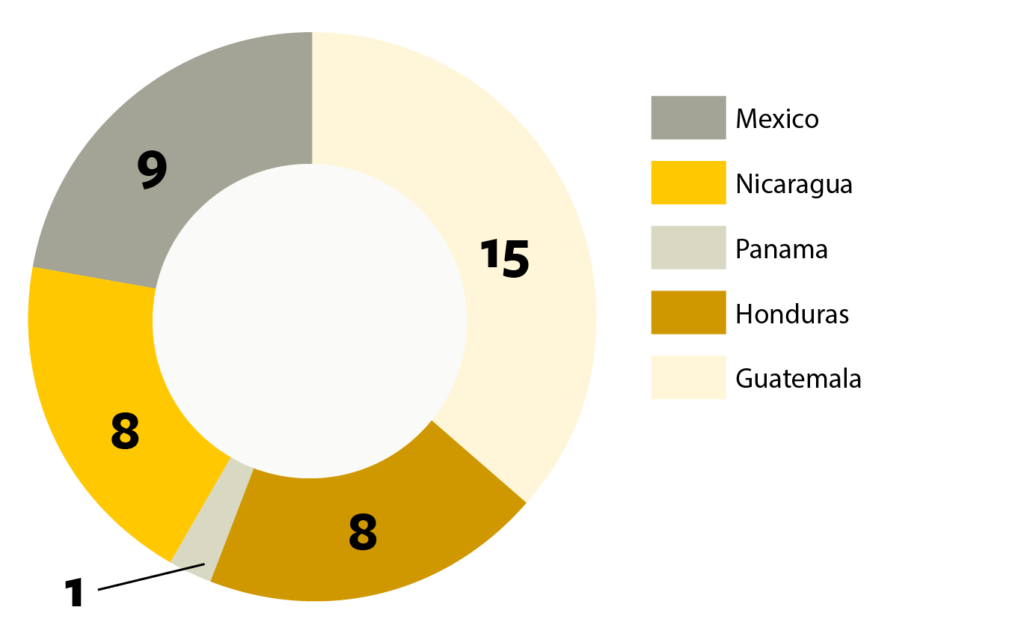
In 2021, no major integrity issues were reported by the team that led to official procedures being activated. The Persons of Trust did field questions and receive requests to discuss certain concerns regarding accountability (or lack thereof) by certain team members, perceived salary discrepancies, among others. However, none of the issues were elevated to trigger the broader procedures for integrity issues.
We are continuing to strengthen our integrity procedures. In addition to the Integrity Advisor, Persons of Trust have been appointed in Mexico, Guatemala, Honduras and Nicaragua, where we have active staff. Our Integrity team has actively participated in the training led by the Global Integrity Coordinator, and plans are being made for 2022 to replicate the training, contextualized to the region and language, but also leveraging the broader team across the Americas. A small group comprising representatives from North, Central and South America offices has already begun to outline the continental capacity-building plan to leverage experiences and materials.
Finance
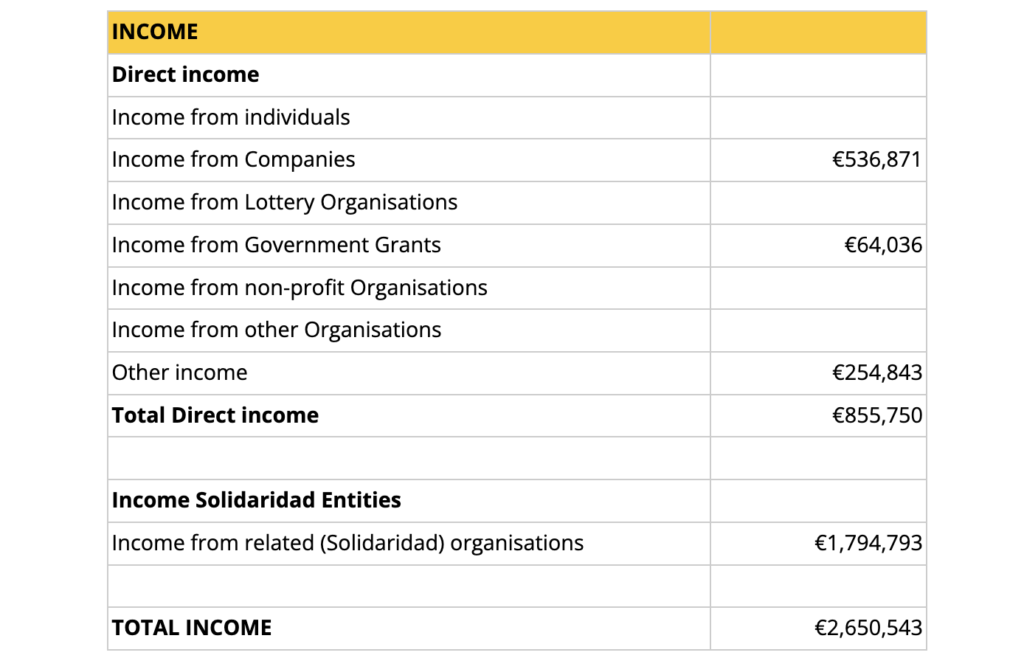
The actual directly contracted income in the region in 2021 is 45% higher than was the previous year for the region. This is caused by other incomes related to the new entity in Mexico that currently provides services to sugar mills and qualifies as non-restricted income. This income stream forms part of the plan to increase the non-restricted revenue to generate reserves for the organization.
Income from Solidaridad entities maintained historical levels and was implemented according to plan.
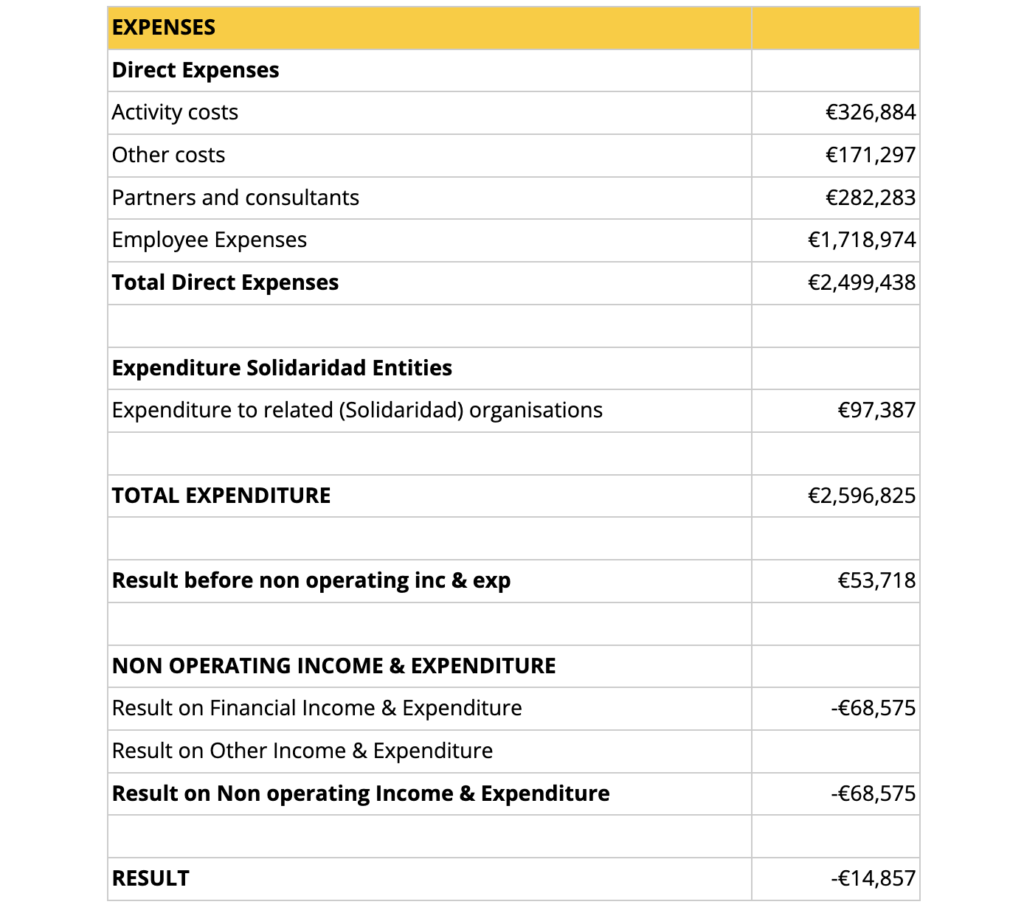
Total indirect expenses increased mainly in Employee expenses due to internal restructuring and operational strenghtening; a new finance manager was hired during 2021 and three finance staff were replaced/hired.
The increase in financial income is caused by fluctuations in exchange rates.
The full audited annual statements of 2021 can be found below:

